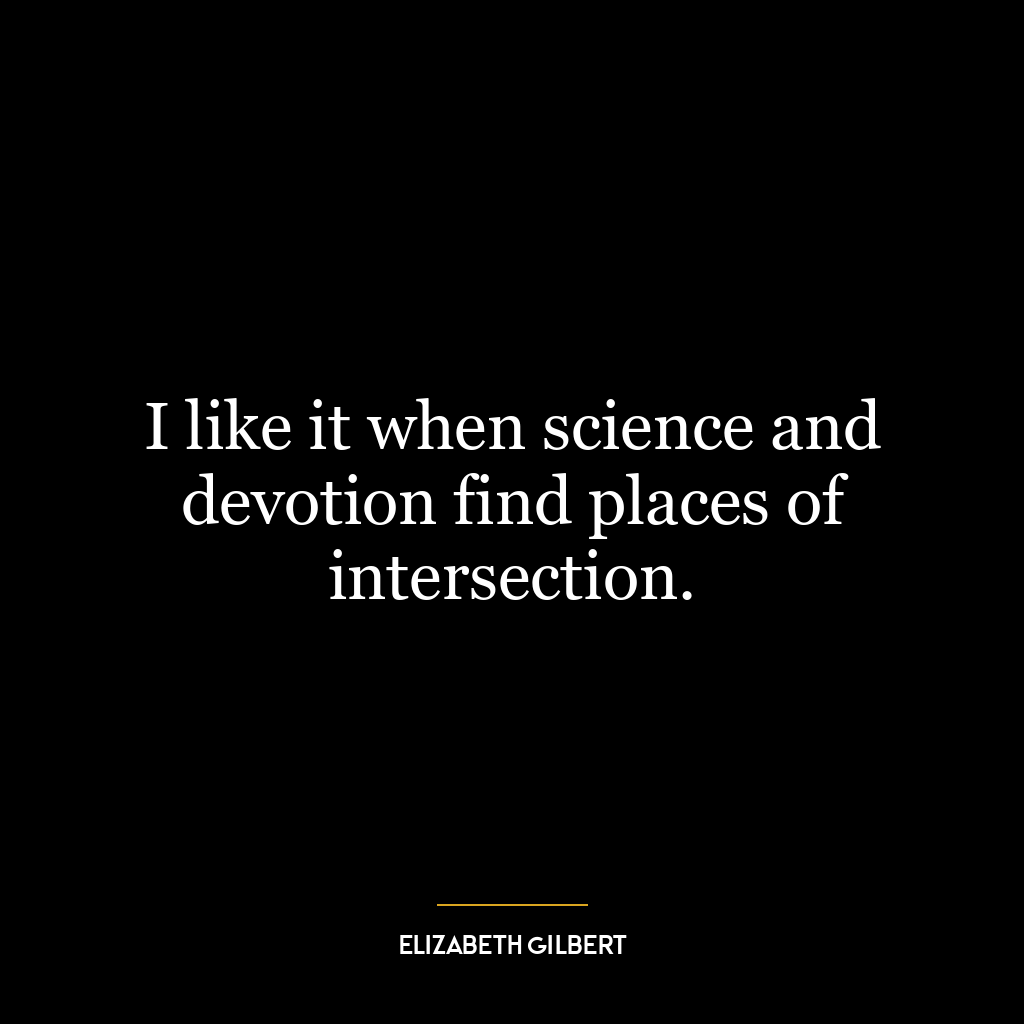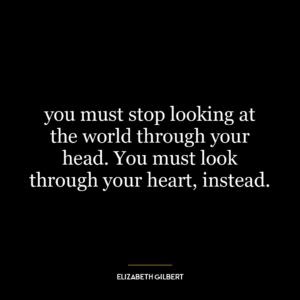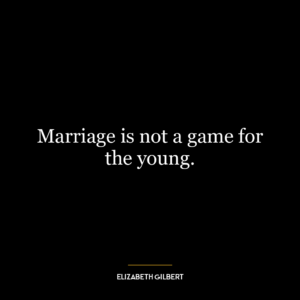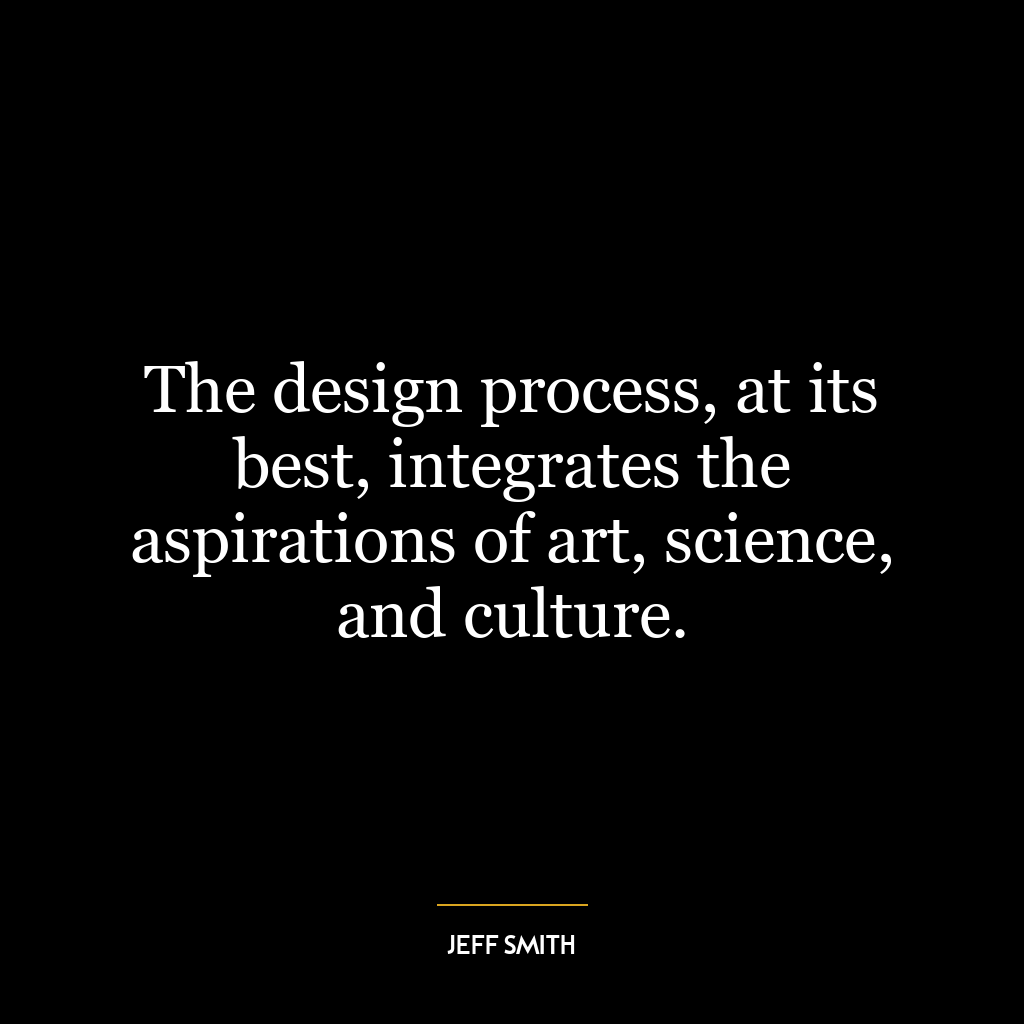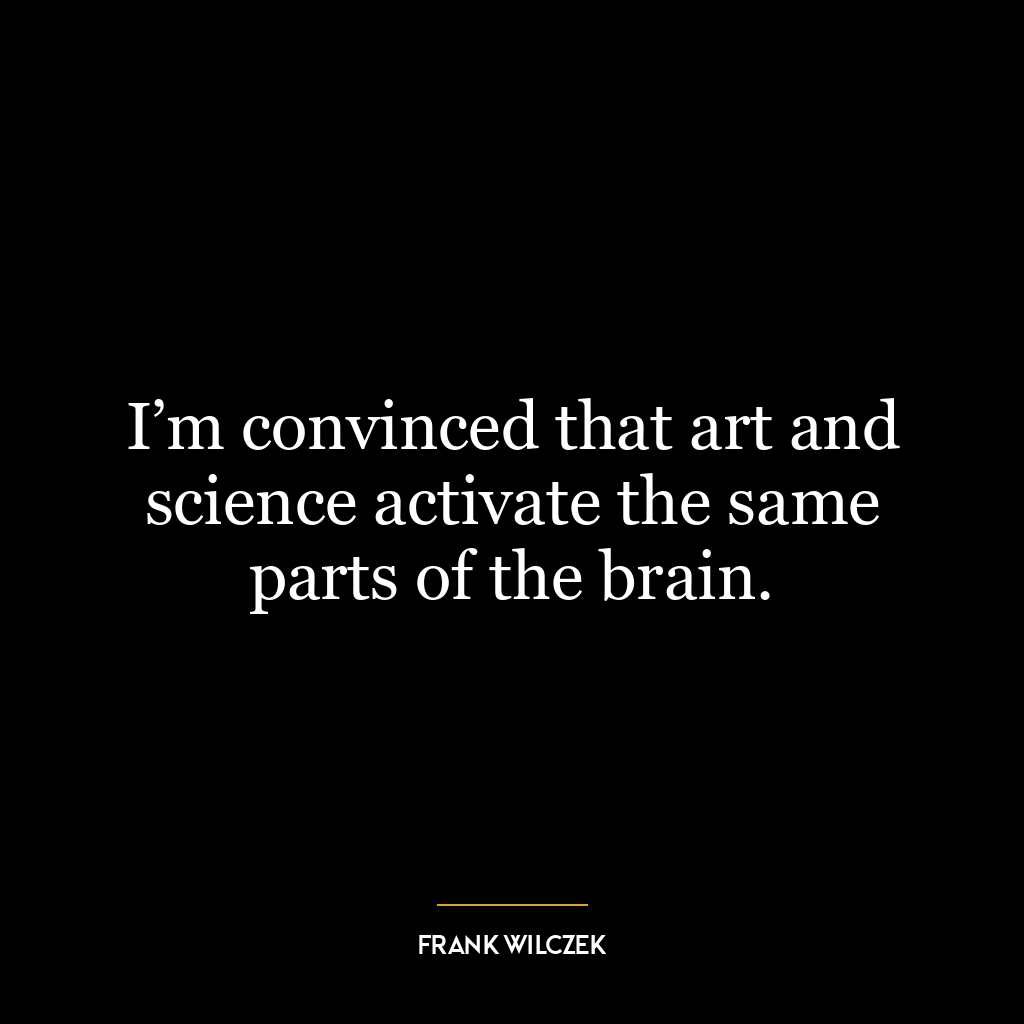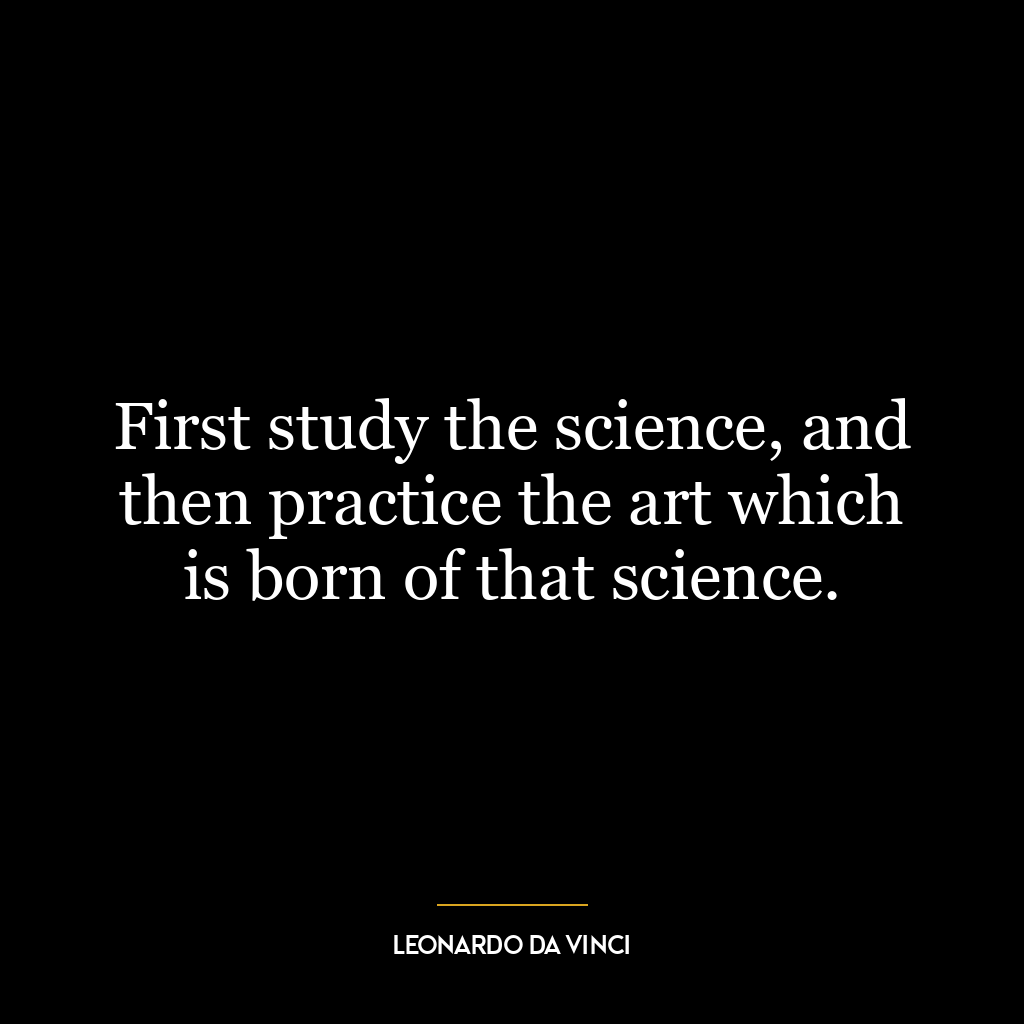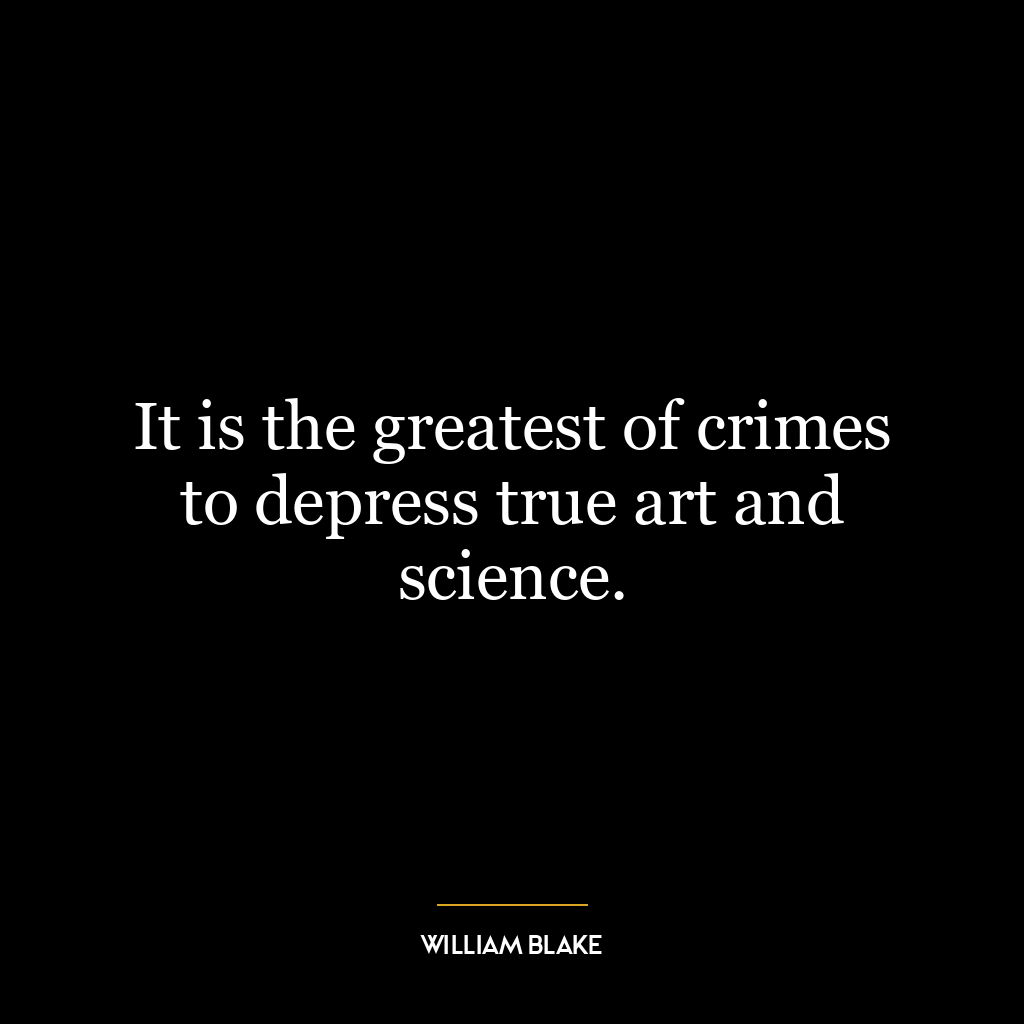I like it when science and devotion find places of intersection.
The quote “I like it when science and devotion find places of intersection” encapsulates the harmony that can exist between empirical evidence and personal faith. It suggests that science and devotion, often seen as opposing forces, can coexist and even complement each other.
Science typically represents the pursuit of knowledge and understanding through observation, experimentation, and analysis. It’s grounded in facts, data, and evidence. Devotion, on the other hand, often refers to a deep commitment or faith, which could be religious, spiritual, or a strong dedication to a cause or belief. It’s more subjective and personal, often transcending the need for physical evidence.
The “places of intersection” between these two seemingly disparate domains can be moments where scientific understanding deepens or enriches personal faith, or where personal faith inspires or guides scientific inquiry. For example, understanding the complexities of the universe through science can lead to a profound sense of awe and reverence, enriching one’s spiritual devotion. Conversely, one’s devotion or faith can inspire curiosity and the pursuit of scientific knowledge.
In today’s world, this intersection is becoming increasingly relevant. As we face global challenges like climate change, pandemics, and social inequality, the integration of science and devotion becomes crucial. Scientific research provides us with the knowledge and tools to address these issues, while devotion can motivate us to act, guiding our decisions and actions based on our values and beliefs.
In terms of personal development, this intersection can help individuals find a balance between logic and emotion, between skepticism and belief. It encourages a holistic approach to understanding ourselves and the world around us, integrating empirical knowledge with personal faith. This can lead to a more nuanced perspective, fostering both intellectual growth and emotional resilience.
In essence, the quote is an invitation to embrace both science and devotion, to see them not as conflicting but as complementary aspects of our human experience. It encourages us to seek knowledge and understanding, but also to acknowledge the importance of faith and dedication in our lives.

